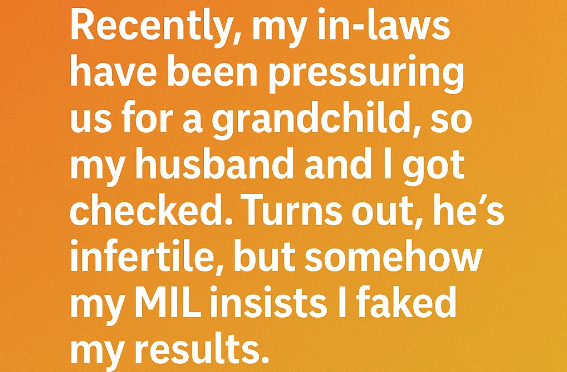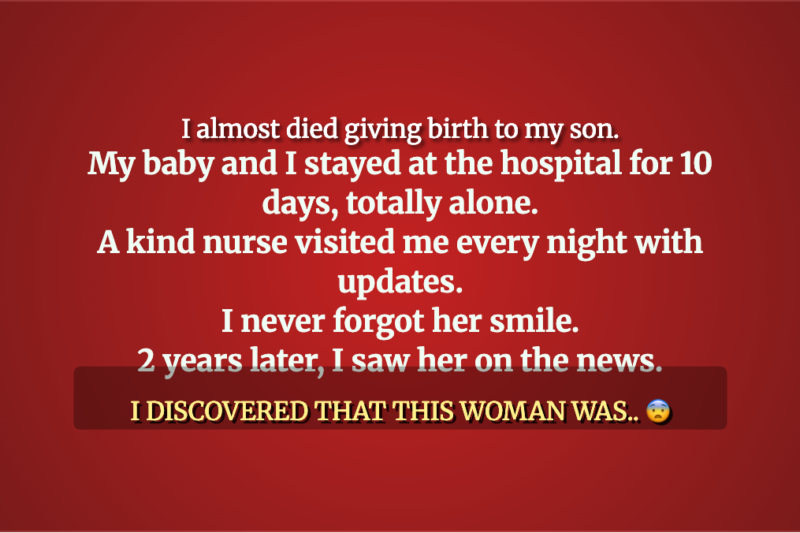Lately, my in-laws have been encouraging us to start a family, prompting my husband and me to seek medical evaluations. We aimed to confirm our health before embarking on parenthood. When the results arrived, I was stunned. The tests revealed that my husband was infertile. My heart sank for him, yet I resolved to stand by his side and consider alternatives, such as adoption. Regrettably, my mother-in-law dismissed the findings. She insisted I had manipulated the results to avoid motherhood, even hinting that I was concealing something.
I attempted to respond with composure, presenting the clinic’s documentation, but she refused to accept it. Her painful accusations created tension within the family. A couple of days later, I returned home to find my husband seated quietly at the kitchen table, his face pale and weary. Alarmed, I hurried to him, fearing something was wrong. After a prolonged silence, he revealed that his mother had confronted him in my absence, urging him to retest because she doubted my honesty.
The second test reaffirmed the initial diagnosis — and this time, my husband recognized how deeply his mother’s skepticism had wounded us both. He admitted that he had briefly questioned my integrity, which led him to comply with her request. My heart ached, but rather than resentment, I felt profound sorrow. I reassured him that creating a family transcends biology and that our bond was resilient enough to face this obstacle — provided we remained united.
The following weekend, we invited his parents over for a heartfelt discussion. With steady resolve, my husband took the lead, presenting the medical reports himself. Then he stated, “Mom, this isn’t about pointing fingers. It’s about mutual respect. If you can’t trust my wife, you’re not trusting me either.” A weighty silence filled the room, but for the first time, my mother-in-law’s expression softened. She offered a sincere apology, and though the path ahead will be challenging, I’m confident that openness and togetherness will light our way forward.




